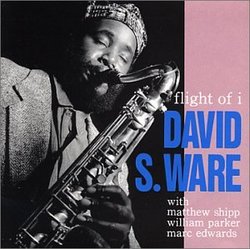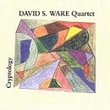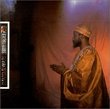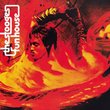| All Artists: David Ware Title: Flight of I Members Wishing: 0 Total Copies: 0 Label: Diw Records Original Release Date: 1/1/1991 Re-Release Date: 3/27/2001 Genres: Jazz, Pop Style: Avant Garde & Free Jazz Number of Discs: 1 SwapaCD Credits: 1 UPC: 634164085629 |
Search - David Ware :: Flight of I
 | David Ware Flight of I Genres: Jazz, Pop
|
Larger Image |
CD DetailsSimilar CDs
|
CD ReviewsThe David S. Ware album to get first Peter E. Johansen | 03/23/2006 (5 out of 5 stars) "I'm not sure if jazz gets any more "inside/outside" than what David S. Ware does on Flight of I. Critics (or others) sometimes refer to "inside/outside" jazz, which typically means jazz that is both inside "the tradition" and outside, or avant-garde. Of course in some ways this makes little sense, especially when you consider that avant-garde (or atonal or free) jazz has been played for maybe 50 years, which is roughly half as long as jazz music has formally existed. So then what exactly is "the tradition"? In a word, standards. And here, the David S. Ware juxtaposes three reworked standards with three original compositions. The primary model here is the Coltrane quartet on more than just a superficial level. This is especially true in the interaction between Matthew Shipp's edgy block chords and David S. Ware's fiery tenor. It's as if the classic Coltrane quartet was playing all on one album - or even all on one song - with as much stylistic variation as exists from the Atlantic recordings up to Meditations (or later). The melodies are just so damn pretty (in a brooding way reminiscent of Coltrane's Sound, the album) and the more dissonant stuff is played with as much fire as Pharaoh Sanders at his best. Overall, it's hard to imagine anyone doing this kind of music better (other than perhaps the classic Coltrane quartet themselves). But still I don't see this music as sounding derivative in a bad way. For one thing, as I alluded to before, the evocative melodies are combined with the dissonance in a way that frequently seems just more extreme than anything Coltrane did. Often Matthew Shipp will play something intensely romantic while David S. Ware plays over him with as much fire as Charles Gayle or anyone else I can think of. This music just goes in so many unique directions that I don't have the language to describe it, and there's likewise so much passion here in all these musicians - and especially in Ware himself - that this ultimately comes together as an intensely personal statement that I have come back to many times. I would vehemently recommend Flight of I to just about anyone interested in this kind of music. " Remarkable intensity Tyler Smith | Denver, CO United States | 04/19/2002 (4 out of 5 stars) "Having just seen David S. Ware in person at the SF Jazz Festival, I can testify that the powerful tenor sounds you will hear on this album were not manufactured in the studio. Ware and his quartet produce music of uncommon intensity, and there is no way for the serious listener to dispute the integrity of their musical vision. "Flight of i," recorded in 1992, is not for the casual listener, nor is it for those who are uncomfortable with musicians stretching the boundaries of what we find "acceptable" sounds. For those willing to stretch their own boundaries, however, few contemporary musicians offer more satisfying challenges than David S. Ware.Ware describes in the excellent liner notes to the album his indebtedness to his musical and spiritual mentors, including Cecil Taylor (with whom he played in the '70s), John Coltrane, Albert Ayler and Sonny Rollins. He adds, however, that there is a line between his playing and, say, Coleman Hawkins, and this is an important point to keep in mind as you listen to "Flight of i." Ware pushes the boundaries of jazz, but the lines, such as they are, had been laid down before him.He takes, for example, the standards, "There Will Never Be Another You," and "Yesterdays," and reduces the melodies to their essence before he embarks on careening and dissonant aural assaults. You may wonder where the melody has gone. However, in taking on the song in this way he is not only finding the core of the tune, but disassembling it, as Coltrane did late in his life with "My Favorite Things" and "I Want to Talk About You." One can also hear reverberations of Hawkins, Webster, Rollins and other masters, as foundation to his own approach.The listener meets his most challenging moments, however, on the title cut. After the excellent pianist Matthew Shipp lays down a hypnotic series of chords, Ware enters with an incredible sonic assault featuring long stretches of circular breathing that remind me of some of Hendrix's feedback barrages on guitar. The impulse for the unprepared listener may be to shrink away, but those with the desire to truly engage the performance are urged to hang in there, particularly if headphones are available. It's an incredible piece of work, one that requires technique of the highest order wedded to intense emotion.It should be noted that Ware works with a quartet in the true sense of the word. Matthew Shipp, William Parker (bass) and Marc Edwards (drums) are far from mere ornamentation for the saxophone. Each plays an important role in the total sound that the group achieves. Listen, for example, to Parker's bowing as a complement to Shipp's chords at the beginning of the title cut. His playing intensifies the eerie quality that the two achieve before Ware's dramatic entrance.Those who lament the course of modern music, claiming that nothing new is being produced, should listen to this album and others by Ware (his latest meshes synthesizer with his volcanic yet spiritual sound). While I at times wish for a bit more variation, I'm never left feeling I haven't gotten my money's worth from David."
|

 Track Listings (6) - Disc #1
Track Listings (6) - Disc #1



